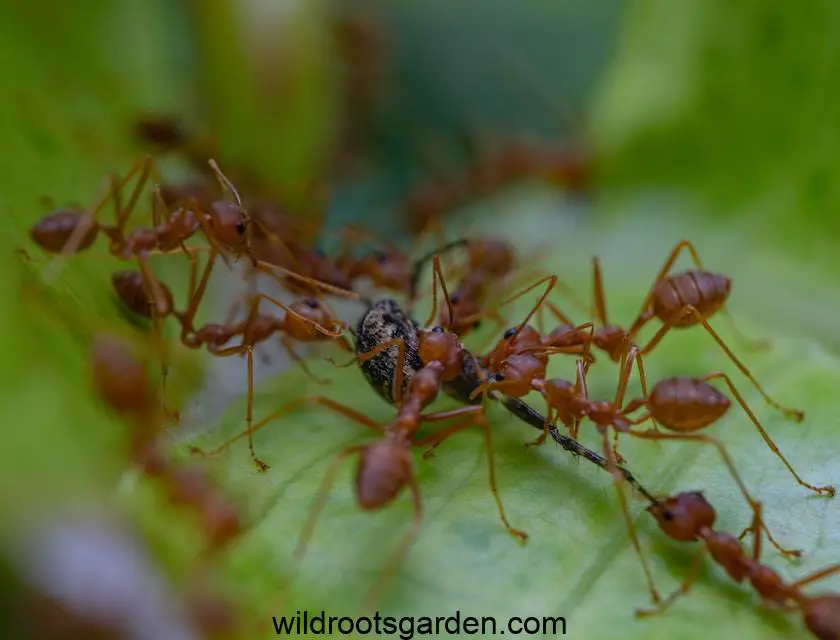How to Get Rid of Ants in Potted Plants Naturally: Ants are a common pest that can be found in many households, and they can be particularly troublesome when they invade potted plants. Not only can they damage the plants by feeding on their leaves and roots, but they can also create unsightly ant trails and nests in the soil. While there are many chemical pesticides available to get rid of ants, these can be harmful to both the environment and your plants. In this article, we will explore natural and effective ways to get rid of ants in potted plants without the use of harmful chemicals.
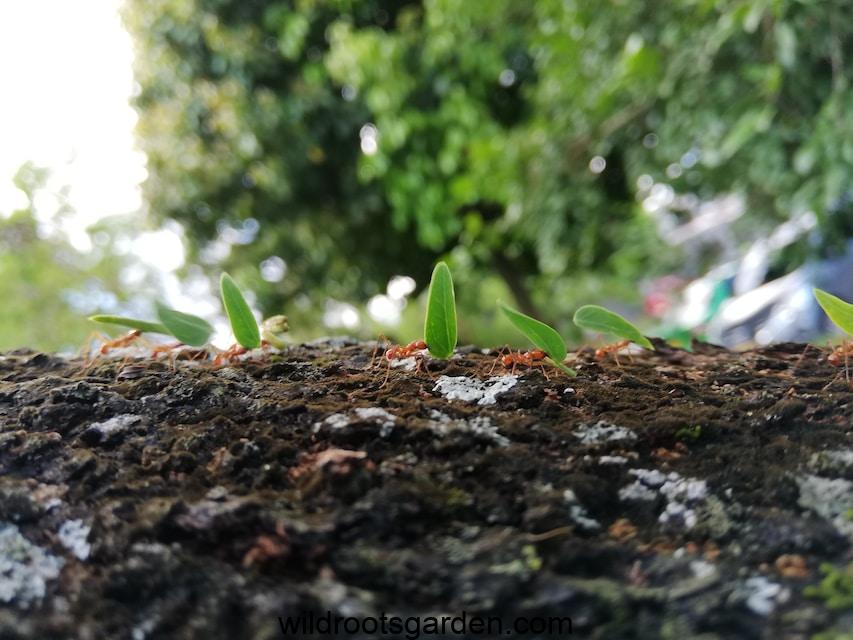
JUMP TO TOPIC
How to Get Rid of Ants in Potted Plants Naturally: The Dangers of Chemical Pesticides
Chemical pesticides are often the go-to solution for getting rid of ants in potted plants. However, these pesticides can have harmful effects on the environment and your health. They can contaminate the soil and water, harm beneficial insects, and even pose a risk to pets and children. In addition, ants can quickly develop resistance to these pesticides, making them less effective over time.
Furthermore, using chemical pesticides can also harm your plants. They can kill beneficial microorganisms in the soil, disrupt the plant’s natural defense mechanisms, and even damage the plant’s roots. This can weaken the plant and make it more susceptible to other pests and diseases.
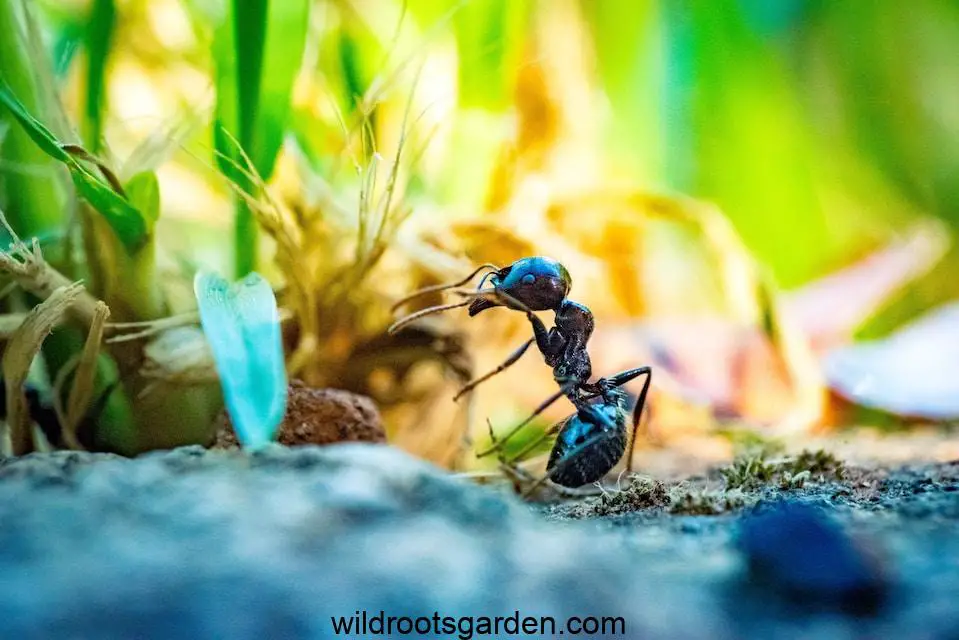
Identifying Ants in Potted Plants
Before we dive into natural ways to get rid of ants in potted plants, it is essential to identify the type of ants you are dealing with. There are over 12,000 species of ants, and not all of them are harmful to plants. Some ants, like carpenter ants, can be beneficial as they help aerate the soil and break down organic matter. However, other species, such as fire ants and Argentine ants, can cause significant damage to plants.
To identify the type of ants in your potted plants, look for the following characteristics:
- Color: Ants can range in color from black, brown, red, or even yellow.
- Size: Ants can vary in size, with some species being as small as 1/16 of an inch and others as large as 1/2 inch.
- Antennae: Ants have two antennae on their heads, which they use for sensing their environment.
- Body shape: Some ants have a segmented body, while others have a more oval shape.
- Nests: Different ant species build different types of nests, such as mounds, tunnels, or colonies in the soil.
If you are unsure about the type of ants in your potted plants, you can consult a pest control professional or do some research online to help you identify them.
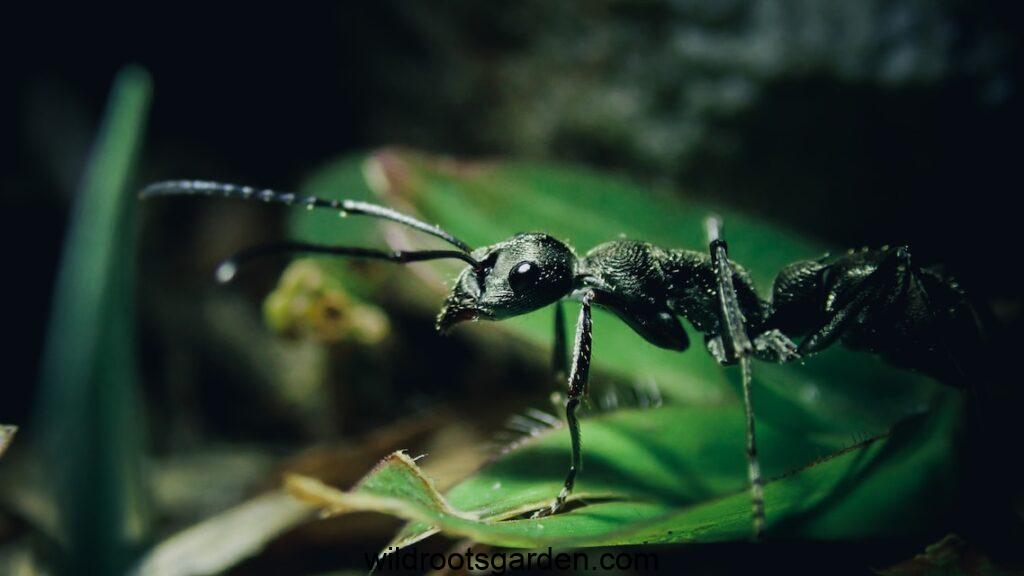
Natural Ways to Get Rid of Ants in Potted Plants
Now that you have identified the type of ants in your potted plants, it’s time to explore natural and effective ways to get rid of them. These methods are safe for the environment, your plants, and your health, making them a better alternative to chemical pesticides.
1. Diatomaceous Earth
Diatomaceous earth is a natural and non-toxic substance made from the fossilized remains of tiny aquatic organisms called diatoms. It is a fine powder that is safe for humans and pets but deadly to ants and other insects. When ants come into contact with diatomaceous earth, it absorb the oils and fats from their exoskeleton, causing them to dehydrate and die.
To use diatomaceous earth in your potted plants, sprinkle a thin layer on the soil surface and around the base of the plant. You can also mix it with water and spray it directly on the ants and their trails. Repeat this process every few days until the ants are gone.
2. Cinnamon
Cinnamon is a natural ant repellent that can be found in most kitchens. It contains compounds that are toxic to ants and can disrupt their scent trails, making it difficult for them to find their way back to the plant. To use cinnamon, sprinkle it around the base of the plant and on the soil surface. You can also mix it with water and spray it directly on the ants and their trails.
3. Citrus Peels
Ants are repelled by the strong scent of citrus fruits, making citrus peels an effective natural remedy for getting rid of them. Simply place citrus peels, such as lemon or orange, around the base of the plant and on the soil surface. You can also blend the peels with water and spray it directly on the ants and their trails.
4. Vinegar
Vinegar is another household item that can be used to get rid of ants in potted plants. Its strong smell disrupts the ants’ scent trails and can also kill them on contact. Mix equal parts of vinegar and water in a spray bottle and spray it directly on the ants and their trails. You can also pour the solution around the base of the plant and on the soil surface.
5. Essential Oils
Essential oils, such as peppermint, tea tree, and eucalyptus, have strong scents that can repel ants. Mix a few drops of your preferred essential oil with water in a spray bottle and spray it directly on the ants and their trails. You can also soak cotton balls in the oil and place them around the base of the plant and on the soil surface.
6. Boiling Water
If you have a severe ant infestation in your potted plants, you can use boiling water to kill them. Boil a pot of water and carefully pour it over the ant trails and nests. This will kill the ants and destroy their nests, effectively getting rid of them from your plants.
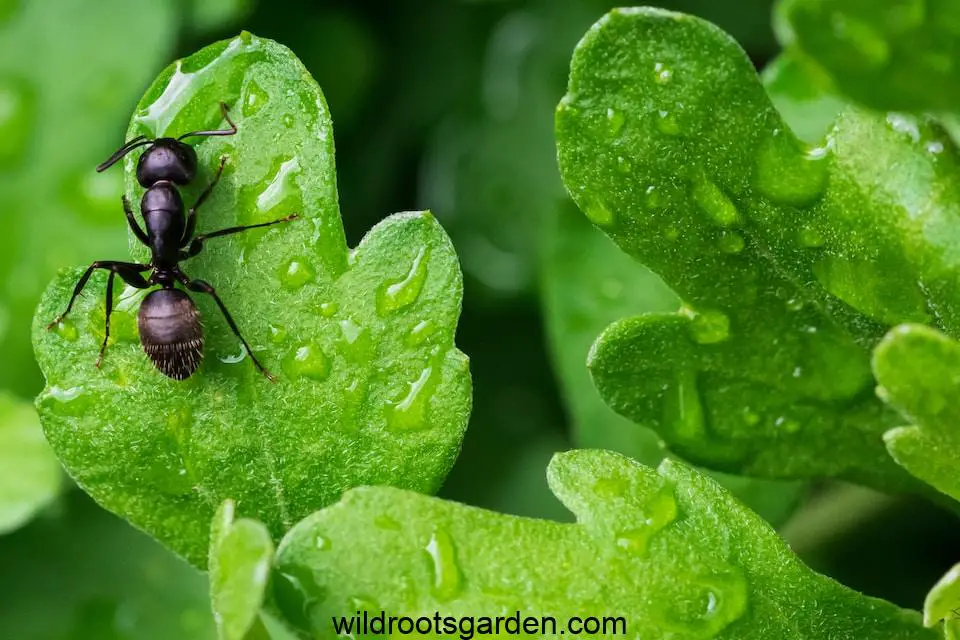
Preventing Ants in Potted Plants
Prevention is always better than cure, and there are steps you can take to prevent ants from invading your potted plants in the first place. These include:
- Keep your plants clean: Ants are attracted to food and water sources, so make sure to clean up any spills or debris around your plants.
- Use ant-proof containers: Consider using containers with smooth surfaces or placing a barrier, such as petroleum jelly, around the base of the pot to prevent ants from climbing up.
- Remove ant trails: If you notice ants in your potted plants, wipe away their trails with a damp cloth to disrupt their communication and prevent them from returning.
- Regularly check for pests: particularly ants, to prevent any potential infestations and subsequent damages. Ants can infiltrate homes and buildings through tiny cracks and crevices, seeking food and water sources. They are highly efficient foragers, capable of locating even the smallest crumbs or spills, creating a trail for their fellow colony members to follow.
FAQs about How to Get Rid of Ants in Potted Plants Naturally:
How do I get rid of ants in my soil?
Natural repellents: Sprinkle cinnamon, diatomaceous earth, coffee grounds, or citrus peels around the plants.
Soapy water: Mix dish soap with water in a spray bottle and target ant trails directly. Use sparingly to avoid harming plants.
Boiling water (caution): Pour boiling water directly into the anthill (only safe for outdoor, well-established plants). Repeat at intervals while observing plant health.
Boric acid bait: Mix boric acid with sugar and water, and place small amounts near ant trails. Workers take it back to the nest, poisoning the colony.
Beneficial insects: Introduce parasitic nematodes or lacewings, natural predators that target ants.
Does baking soda kill ants in potted plants?
Does soapy water kill ants on plants?
Does boiling water kill ants?
What is the best homemade ant killer?
Final Thoughts
regularly checking for pests, especially ants, is an essential part of maintaining a pest-free environment. By being proactive and implementing preventive measures, you can prevent ant infestations, protect your property, and maintain a clean and healthy living space for you and your family.
Remember, prevention is key! Eliminate sources of ant attraction like spills, crumbs, and standing water. Regularly inspect your soil and address minor infestations before they escalate.
Resources:
Here are some helpful resources to combat those pesky ants in your soil:
Articles:
- Gardenista: This article from Gardenista provides a comprehensive overview of organic ant control methods, including detailed instructions for making your ant repellents and baits. https://www.gardenista.com/
Websites:
- National Pest Management Association: The NPMA website offers science-based information on pest control, including a section on ants with tips for preventing and eliminating infestations.Wikipedia.org National Pest Management Association website
Videos:
- Gardening at Home: This YouTube video from Gardening at Home demonstrates how to make and use a simple boric acid ant bait.www.saffrontrail.com Gardening at Home YouTube channel
- Crooked Gardener: This video from the Crooked Gardener channel shows how to use diatomaceous earth effectively to kill ants in your garden.
Remember, choosing the right method depends on the severity of the infestation, the type of ants you’re dealing with, and your personal preferences. Always prioritize the safety of your plants and use caution when handling any kind of pesticide.
I hope these resources help you reclaim your soil from the ant invasion!

